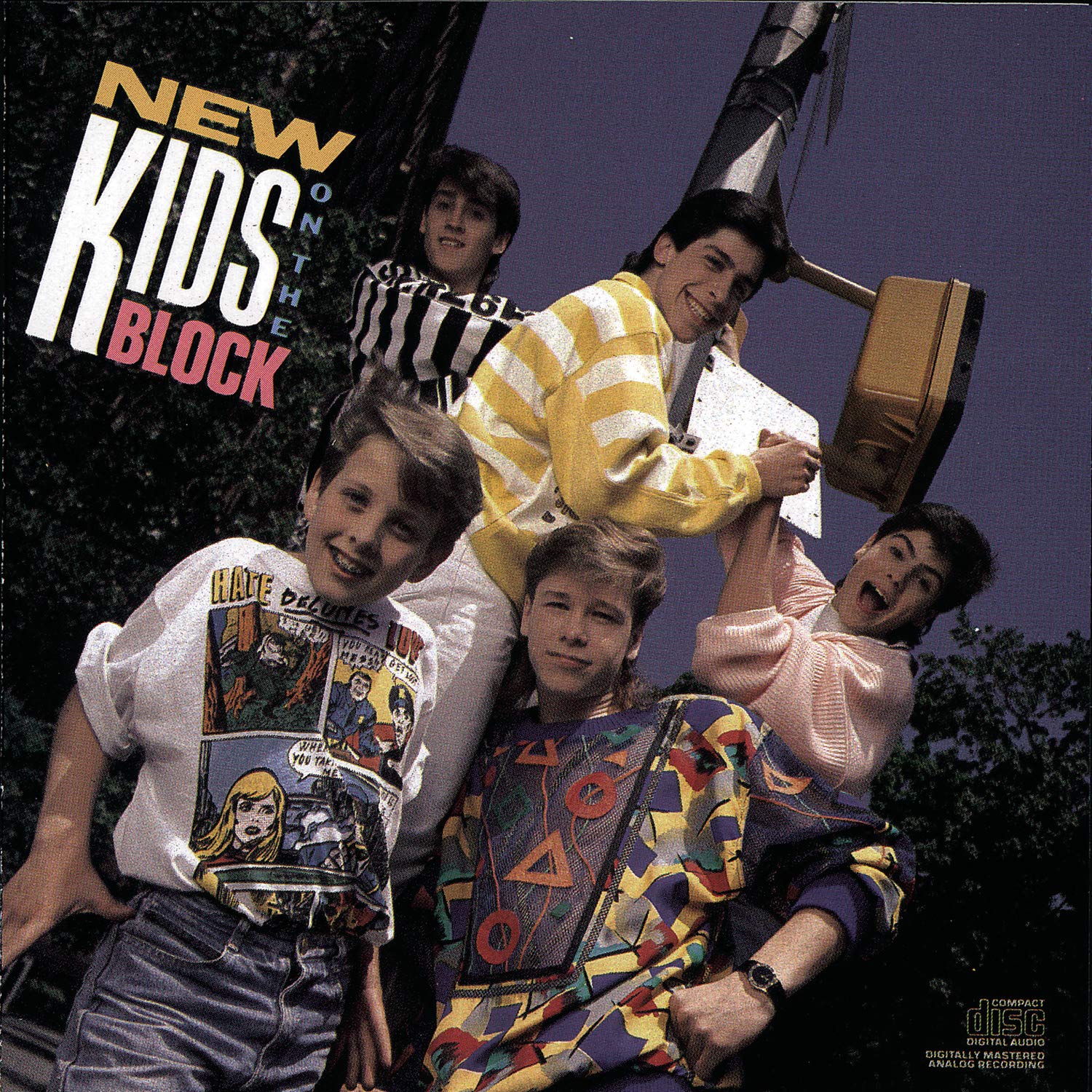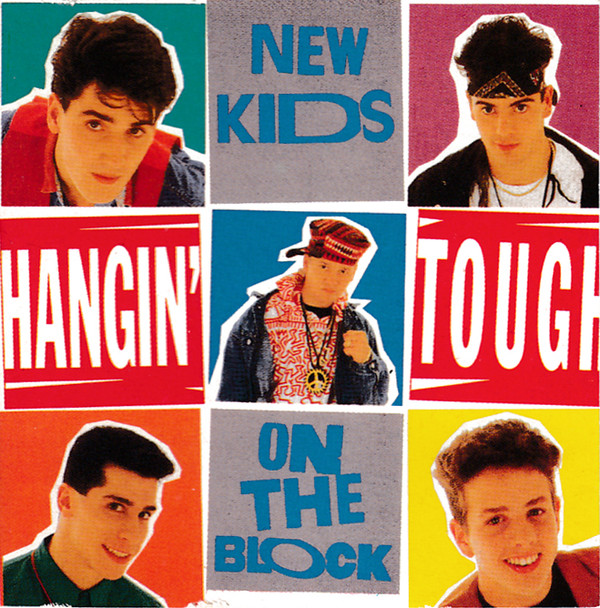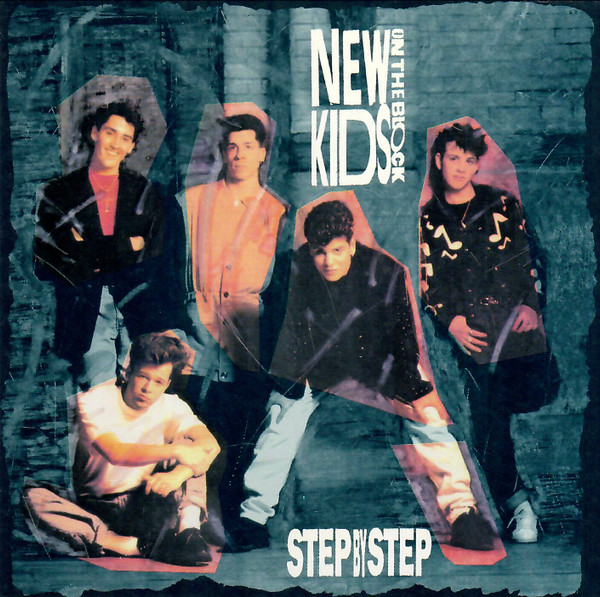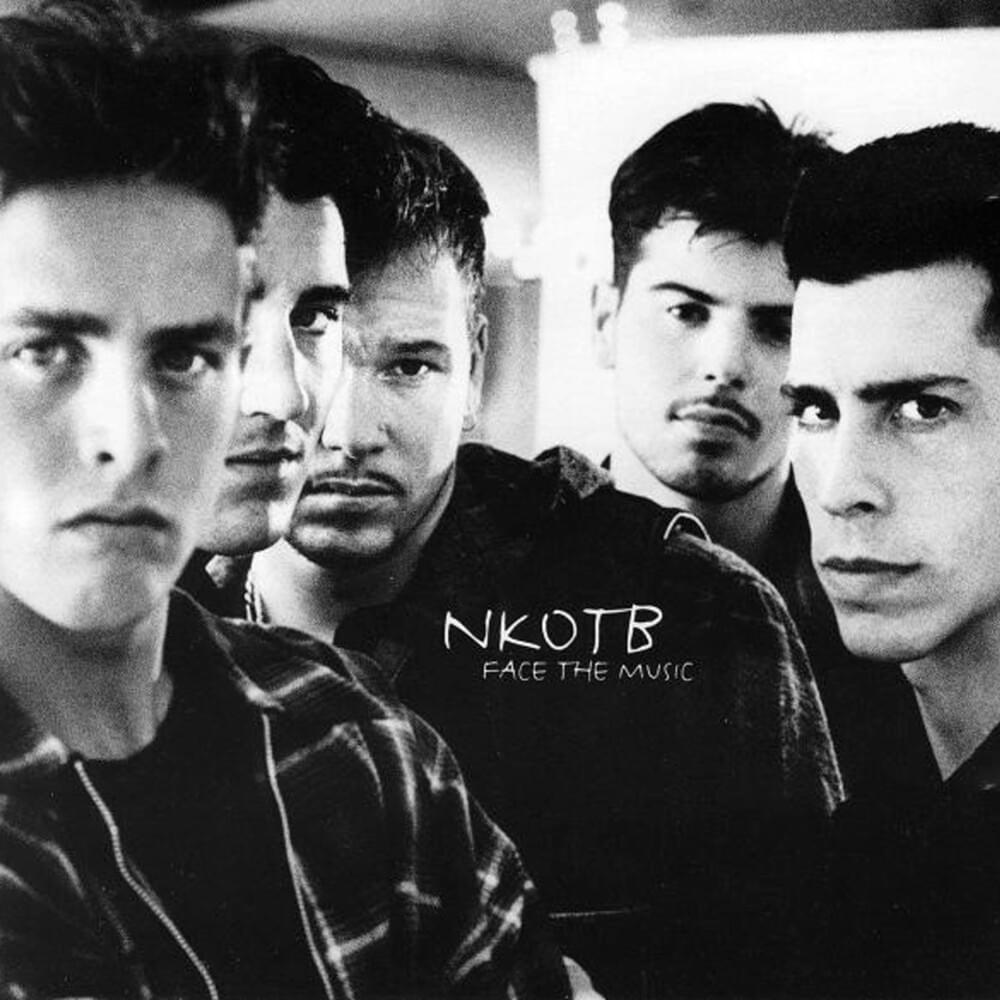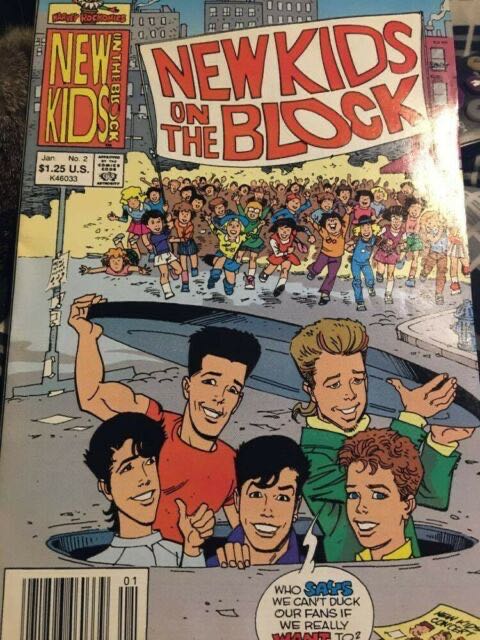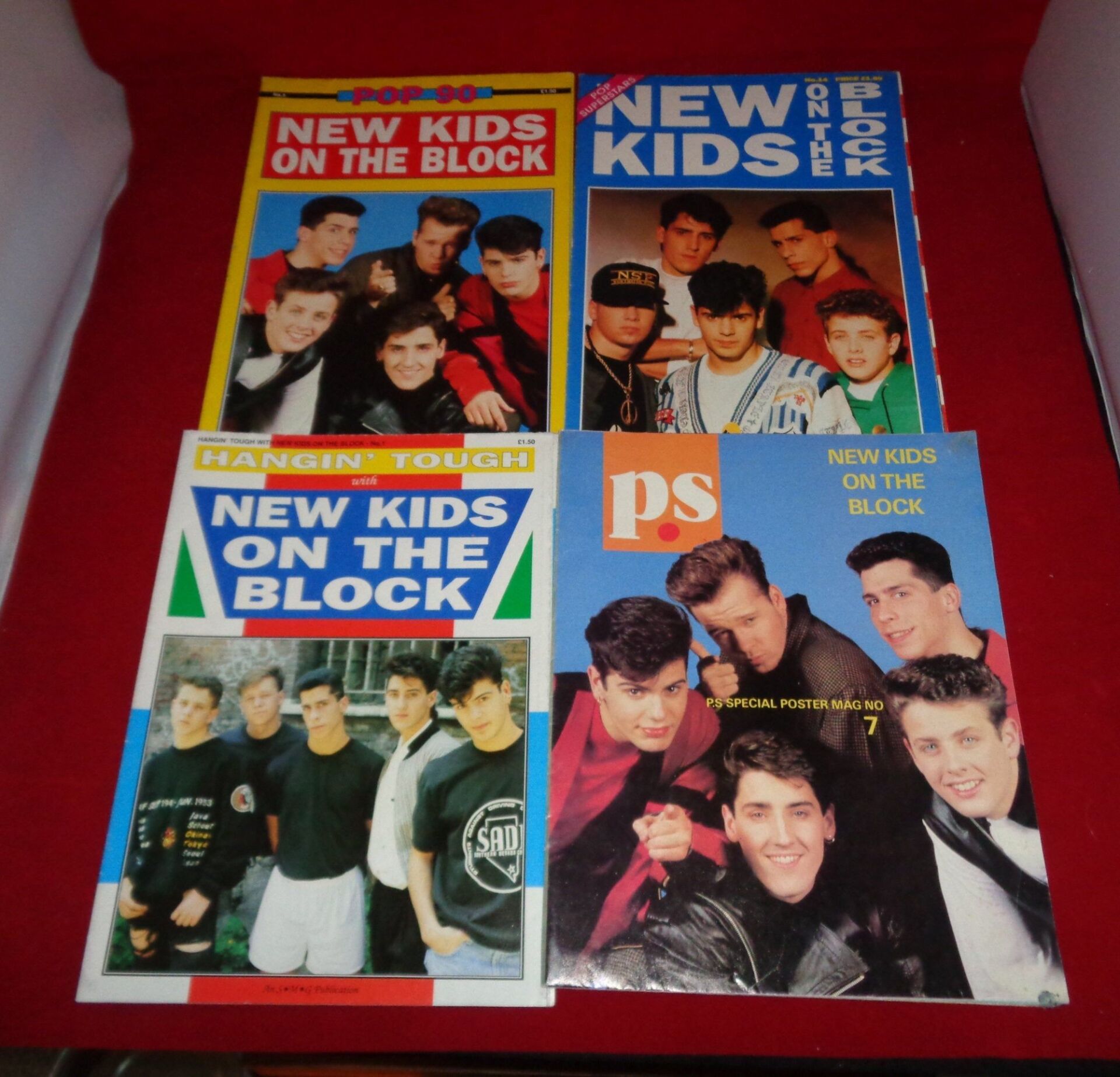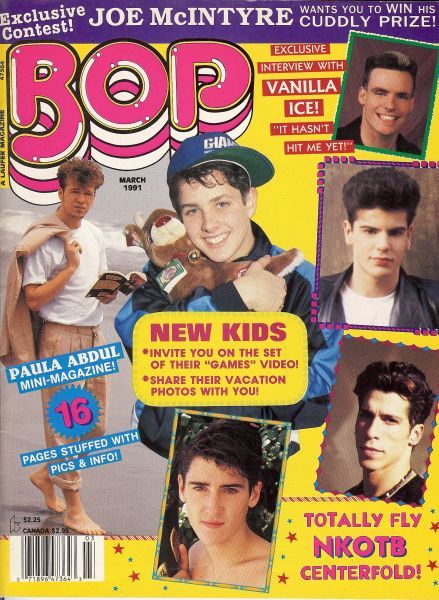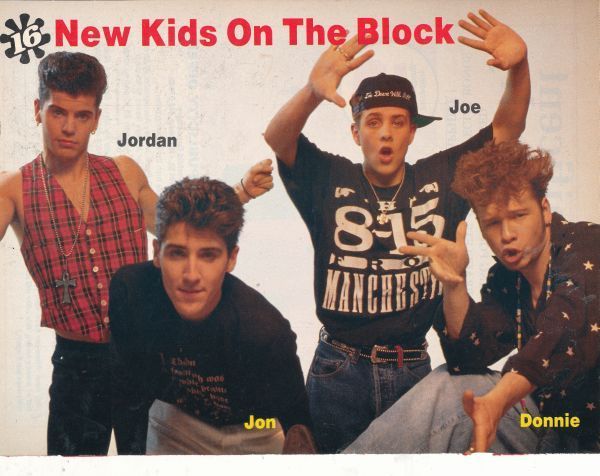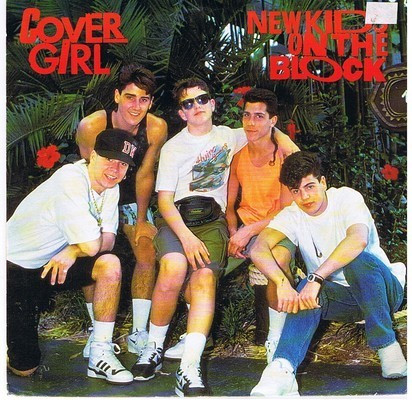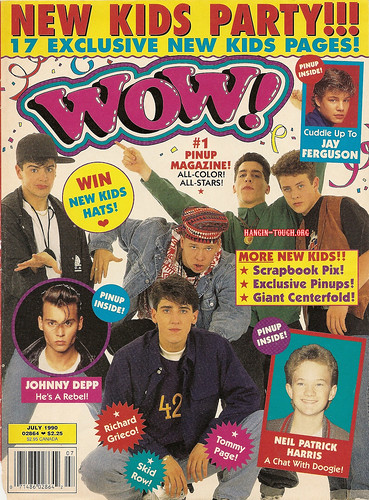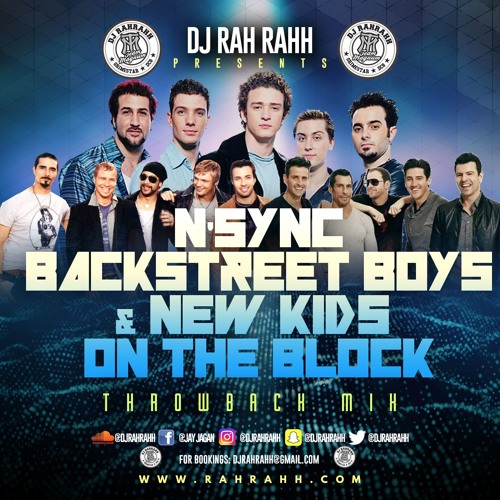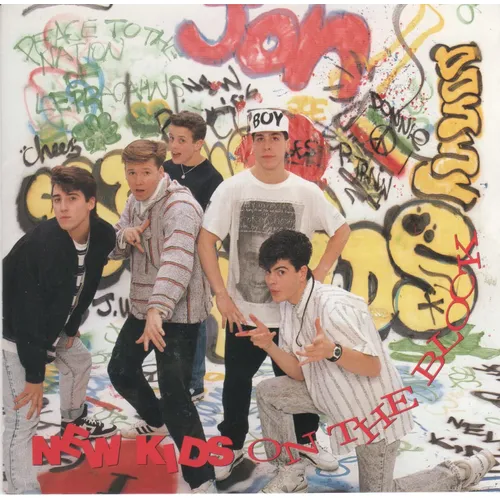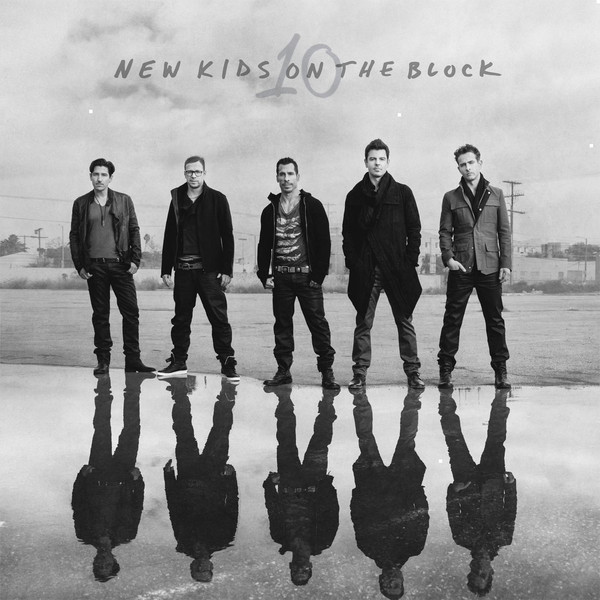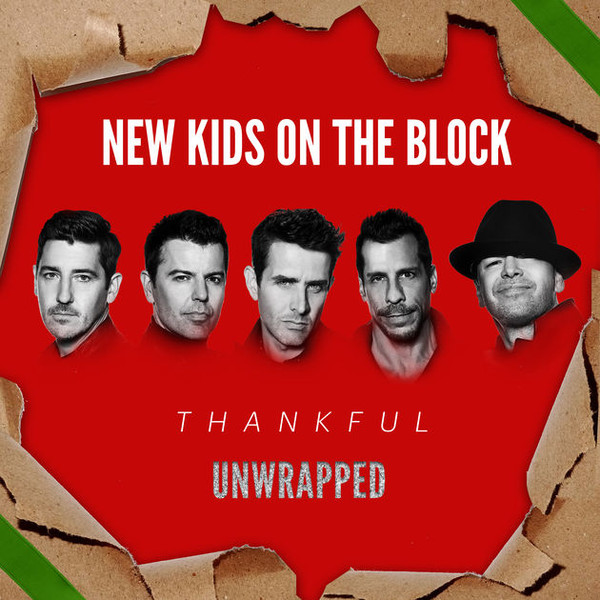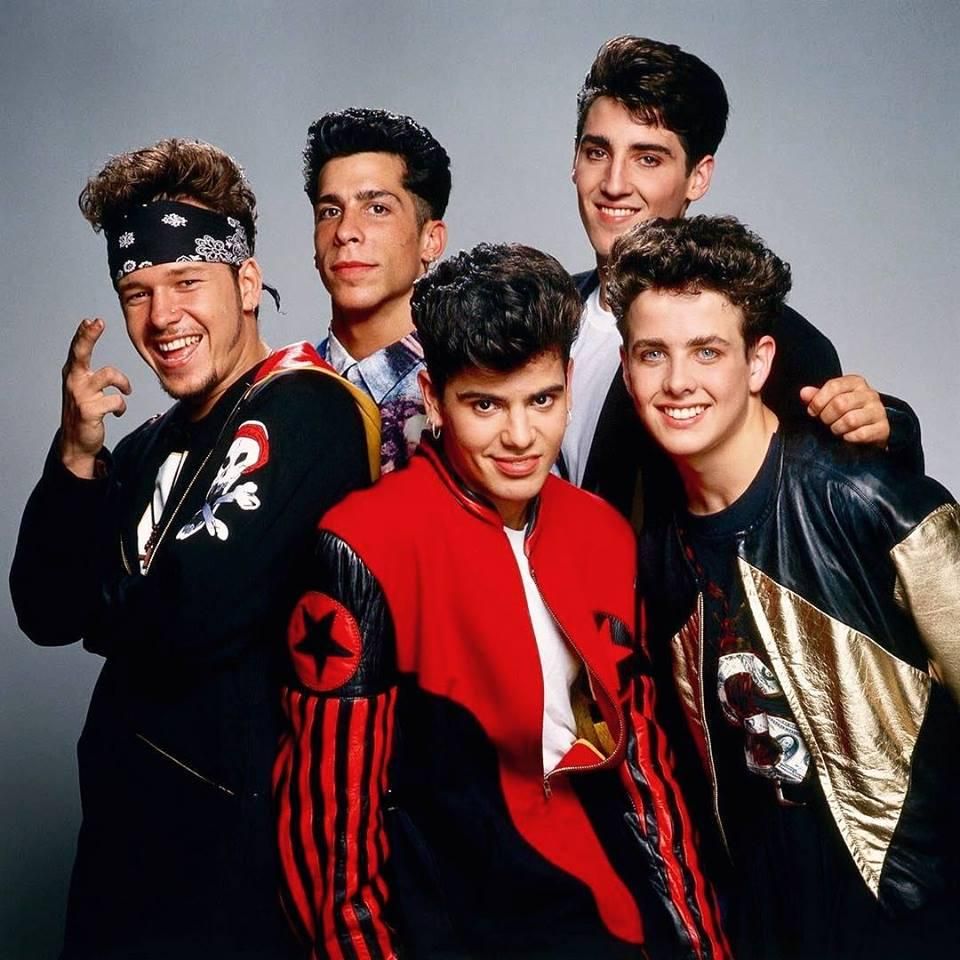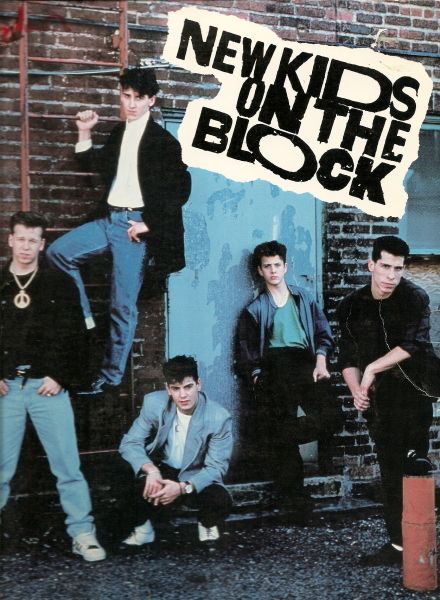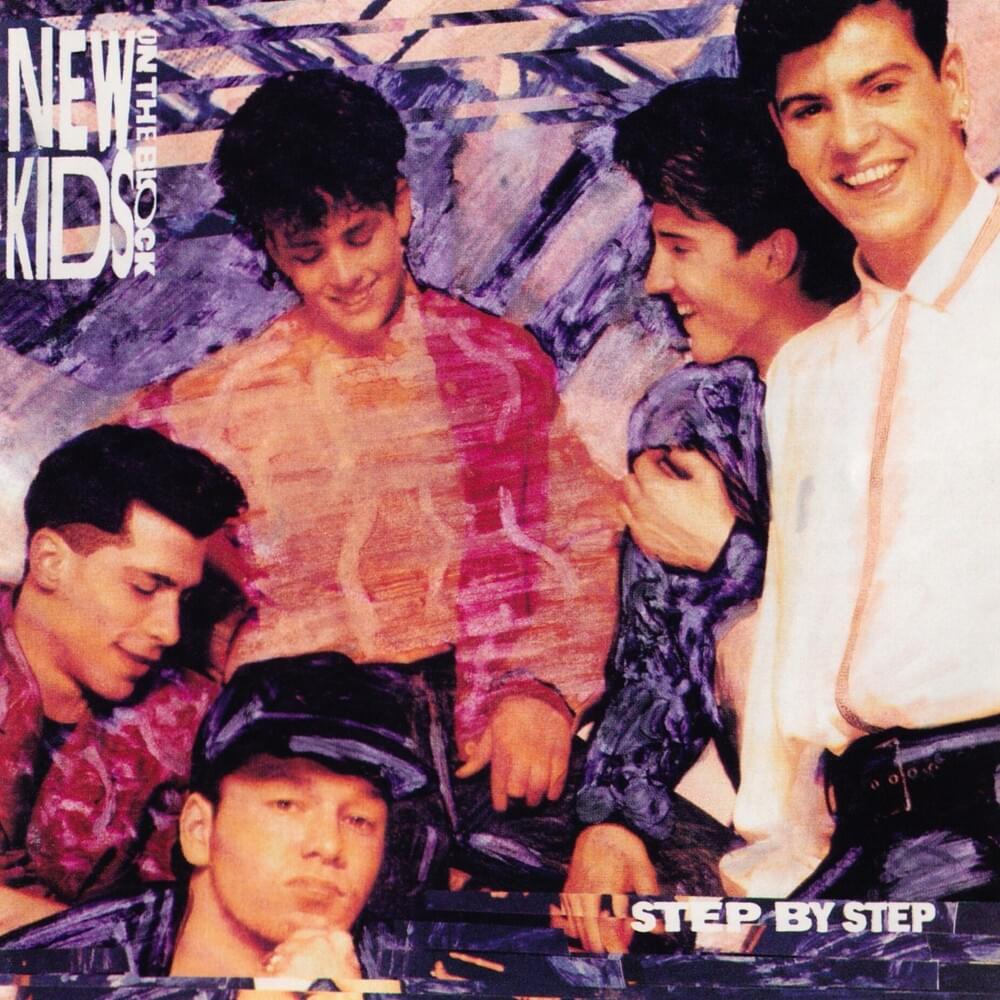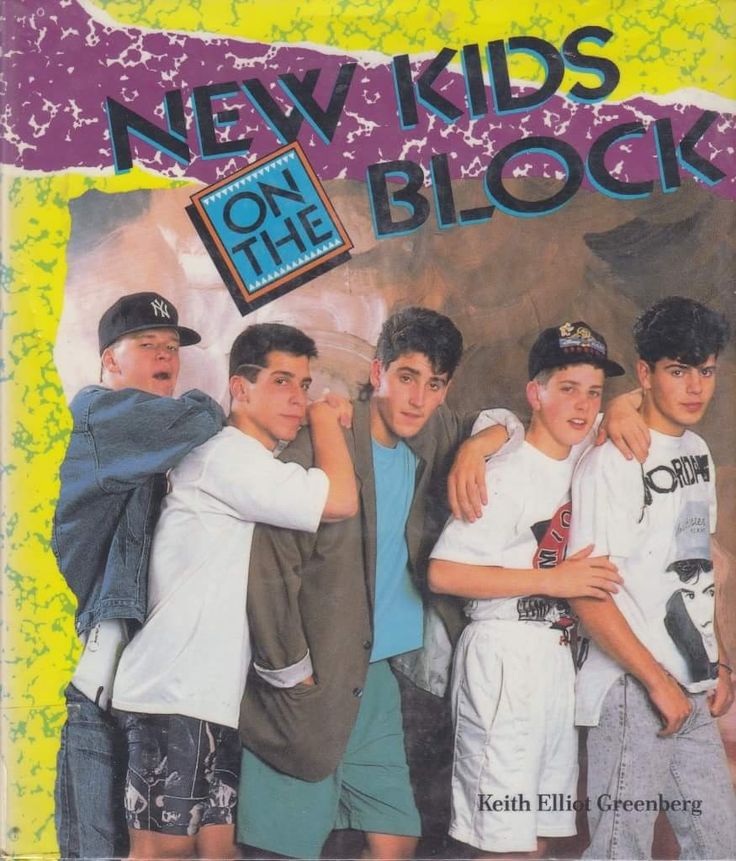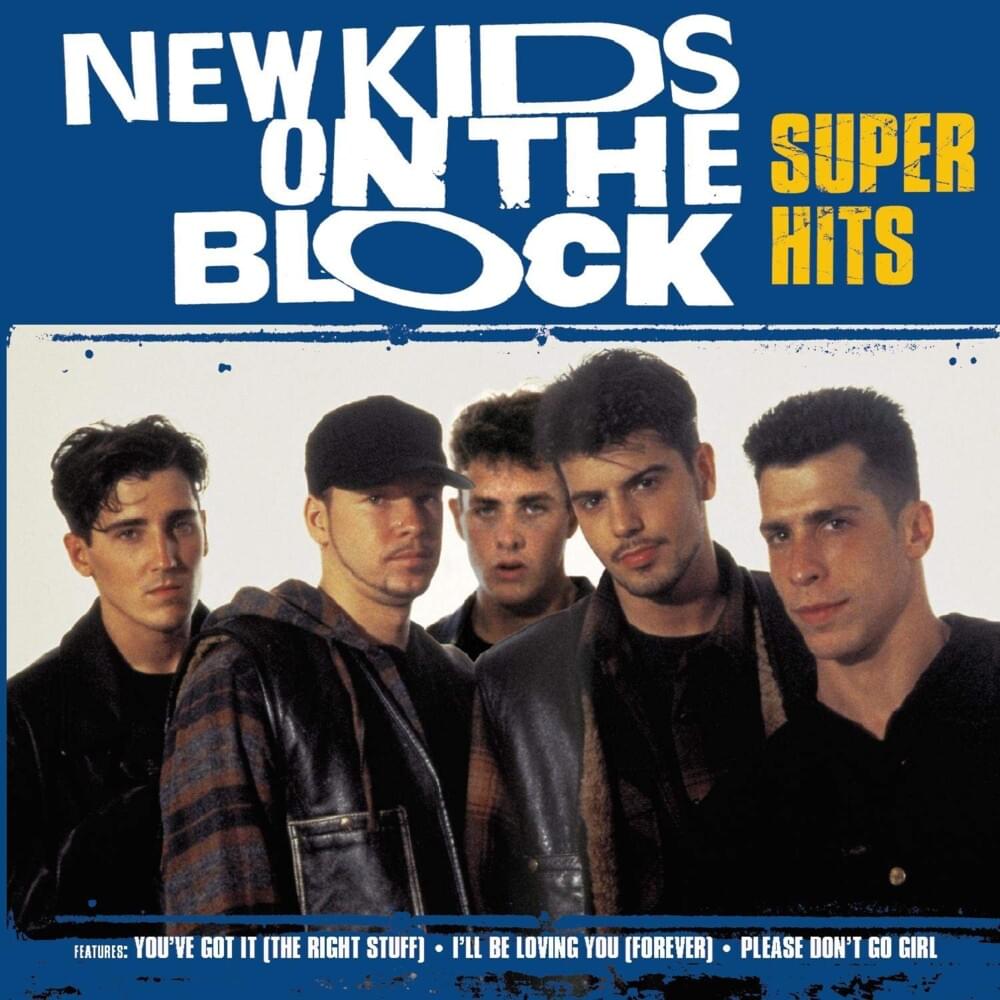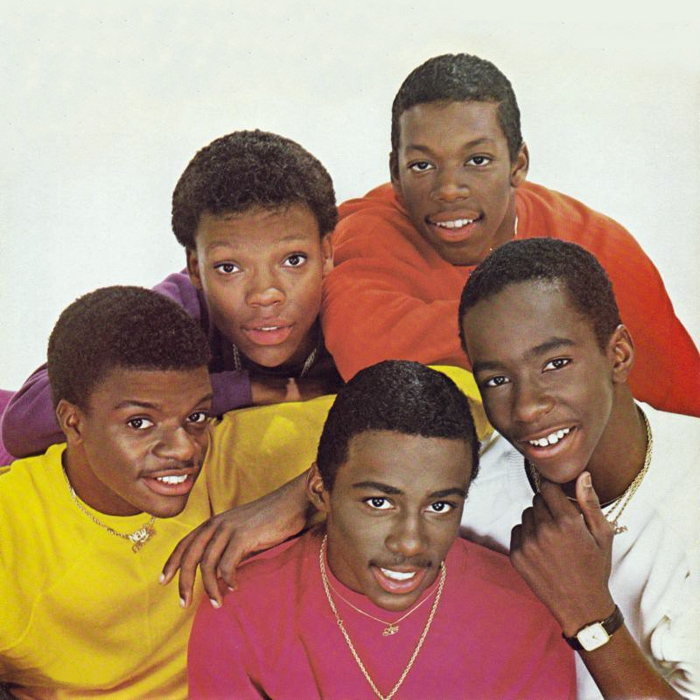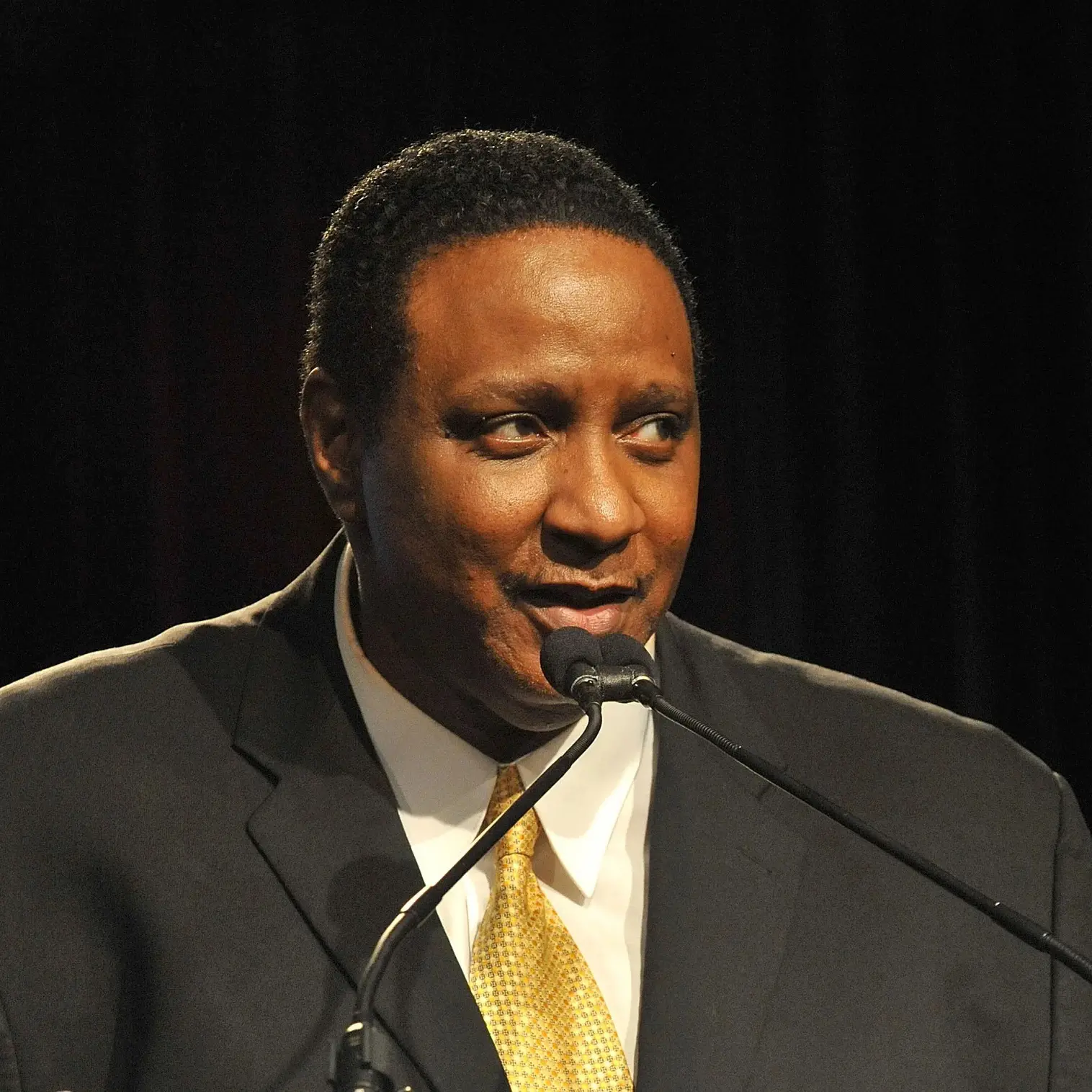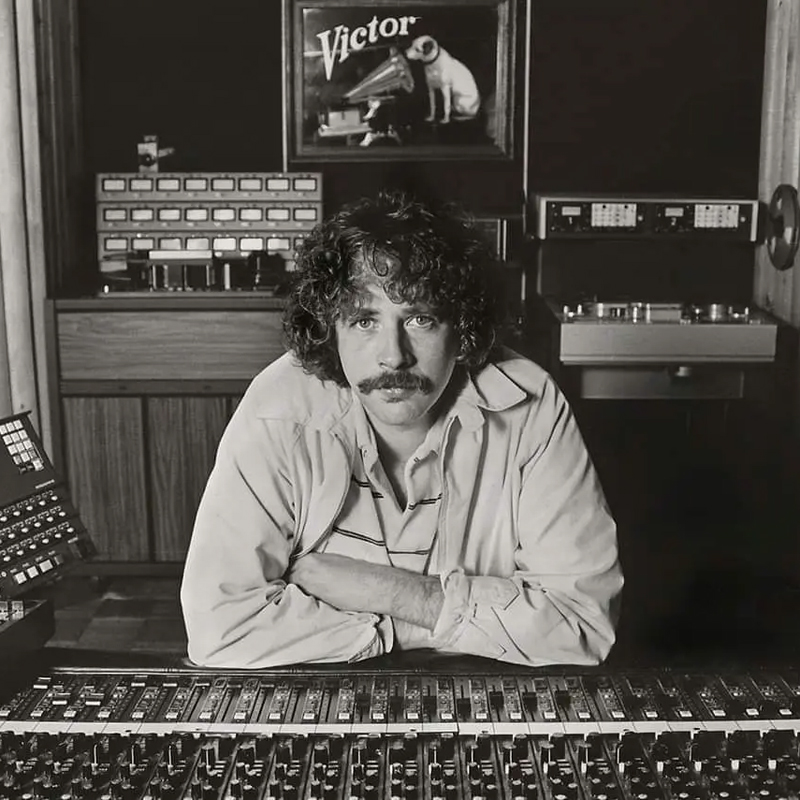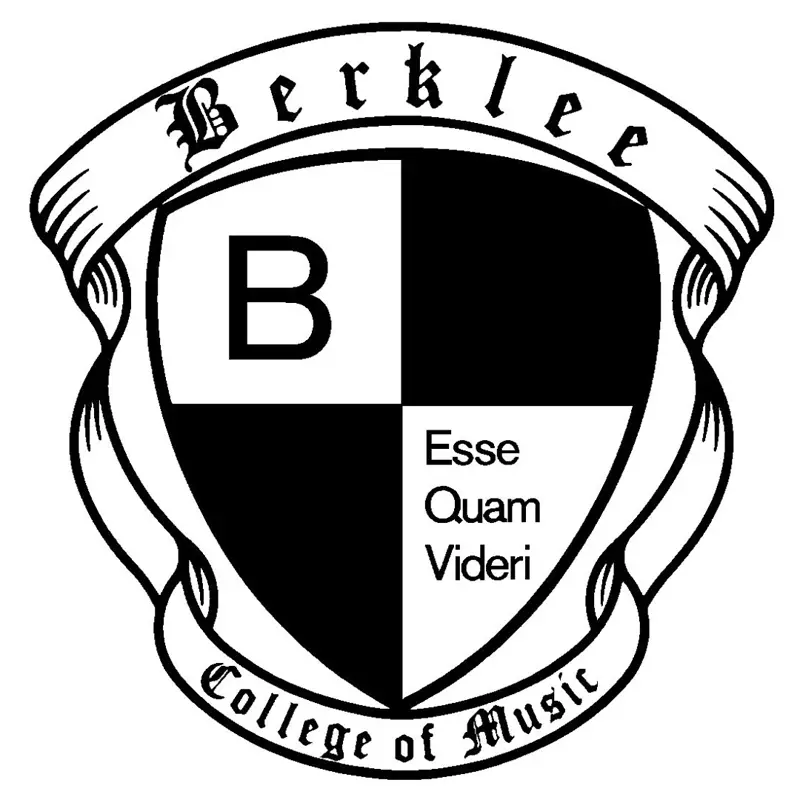New Kids on the Block
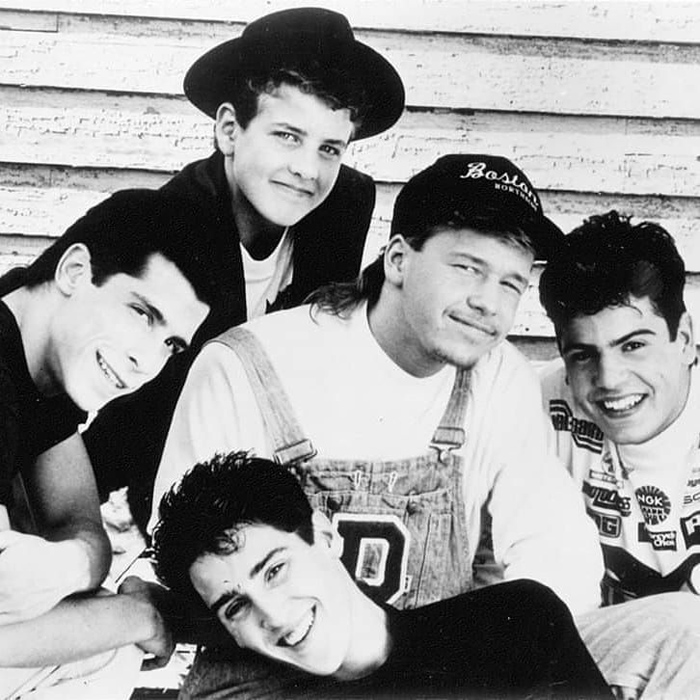
Those who weren’t old enough, interested enough or alive enough to witness the boy-band eruption that occurred some 40 years ago in the US might write off New Kids on the Block as “just another ‘80s boy band.” They weren’t. Those who were old enough, interested enough and alive enough to witness said event might call them “the original ‘80s boy band.” Again, they weren’t.
Here’s what they were: the original white ‘80s boy band. Menudo, comprised of five Latino teens, formed eight years before NKOTB and dominated Billboard’s Latin Pop Airplay chart. New Edition, comprised of five Black teens, formed in Roxbury two years before NKOTB and dominated Billboard’s Hot Black Singles chart. In a nutshell, New Kids on the Block were not the first kids on the block; they were the neighborhood’s Caucasian newbies and they lived in Billboard’s Hot 100.
OVERVIEW
In their late-‘80s heyday, NKOTB was an inescapable presence in American pop culture, as ubiquitous on mainstream radio, MTV and in print as any group has ever been. With a squeaky clean image reminiscent of Frankie Avalon’s and a pristinely polished stage presentation reminiscent Motown’s finest, they filled stadiums across the globe, appeared on the covers of magazines ranging from Billboard, 16 and Teen Beat to People, Ladies Home Journal and Cracked, boasted a fan club of over 200,000 members and operated a hotline, 1-900-909-5KIDs, that received more than 100,000 calls per week.
Along with Menudo and New Edition, the band paved the path for the teen-pop boom of the ‘90s and early 2000s. Among the household names that were pulled into their wake and formed in the years after NKOTB’s popularity began to wane are Take That (1990); Hanson (1992); Backstreet Boys (1993); NSYNC (1995); 98 Degrees (1996); O-Town (2000); and The Jonas Brothers (2005).
Guided by their unapologetically hands-on producer, Maurice Starr – also the mastermind behind New Edition – the group ruled the charts with a carefully crafted blend of irresistible grooves, infectious hooks and dance-centric rhythms. One of the most financially flush acts in history, they raked in up to $1 million per week at their peak.
The group recorded five albums between 1986 and 1994, two of which hit #1 in the Billboard 200, and eight singles from those discs cracked the Billboard Hot 100, three making it to #1. Among other accolades, they won nine Boston Music Awards, two American Music Awards and two Nickelodeon Kids’ Choice Awards. NKOTB never won a Grammy, but they were nominated for one in 1990.
FORMATION
When Starr and New Edition parted ways in 1983, he went to work immediately on putting together a new act that could fill their shoes. And it was no surprise that he assembled a white group for what was essentially New Edition 2.0. “I honestly believe that if [New Edition] had been white, they would have been 20 times as big,” he once said.
In 1984, Starr launched a talent search across Boston, looking for trainable, good-looking young men to front his new venture. Dorchester native Donnie Wahlberg, then 15, dazzled him with his rapping skills and became the first member of the band; his brother Mark joined next, but left after just a few months. Walberg recruited 15/16-year-old school friends Jamie Kelly, Jordan Knight and Danny Wood, also from Dorchester; Jordan’s older brother Jonathan joined later after Kelly left. Starr’s priority was to find a singer with the same skills and stage presence as young Michael Jackson, which he did in 12-year-old Joey McIntyre of Jamaica Plain.
With the final lineup set – Donnie Wahlberg, Jordan Knight, Jonathan Knight, Danny Wood and Joey McIntyre – Starr began overseeing after-school and weekend rehearsals, mirroring the rigorous training regimen he’d used with New Edition.
COLUMBIA SIGNING, NAME CHANGE
In late 1985, Starr had nailed down a deal with Columbia, which intended to target Black audiences given the group’s R&B vibe. To do so most effectively, the label said, the band needed a new name. Their original name was Nynuk (pron. “na-nook”), which NKOTB’s official biographer, Nikki Van Noy, has said was “meaningless,” and not a reference to the 1922 silent film Nanook of the North as some in the press postulated. The band chose New Kids on the Block since it was the title of one of Wahlberg’s rap songs (later track six on their debut album).
DEBUT ALBUM
In April 1986, Columbia released the group’s eponymous debut LP. In line with his approach to New Edition, Starr wrote six of the ten tracks and co-wrote three others. The only song not credited to him is the Philly soul classic “Didn’t I (Blow Your Mind This Time),” which The Delfonics sent to #3 in the Billboard R&B chart in 1969.
The album peaked at an impressive #25 in the Billboard 200 but none of the singles charted nationally. The first, “Be My Girl,” saw some local airplay but was a non-event otherwise and the second, “Stop It Girl,” flopped everywhere. Starr kept the supporting tour a small-scale event, booking them around New England at bars, clubs and school dances.
HANGIN’ TOUGH
Following the less-than-stellar results of the first record, Columbia made it clear to Starr that NKOTB’s sophomore effort was a make-or-break situation, telling him in no uncertain terms that the label would drop the band if singles from new album performed as weakly or worse. Suffice to say that Columbia chose not to cut the group loose.
Released in August 1988, Hangin’ Tough was everything the debut was not in terms of sound and chart performance. Adding a new slickness to the neo-bubblegum pop of their first disc proved a wise decision as the album went to #1 in the Billboard 200 and produced five top-10 singles in the Billboard Hot 100: “Hangin’ Tough” (#1), “I’ll Be Loving You Forever” (#1), “You Got It (The Right Stuff” (#3), “Didn’t I Blow Your Mind” (#8) and “Please Don’t Go Girl” (#10).
The album was recorded at The House of Hits in Boston and Mission Control in Westford, Massachusetts, and mixed at Normandy Sound in Warren, Rhode Island, by guitarist-turned-engineer Phil Greene, who also mixed NKOTB’s third album.
STEP BY STEP
After recording a Christmas LP in 1989 that went to #9 in the Billboard 200, NKOTB fed New Kids Mania with Step by Step, released in June 1990. In a significant departure from the first two albums, over half of the songs were cowritten and produced by the band members themselves. Following the lead of its predecessor, the album soared to #1 in the Billboard 200 and three singles cracked the Hot 100 top ten: “Step by Step” (#1) “Cover Girl” (#2) and “Tonight” (#7).
MERCHANDISING, ANIMATED TV SERIES
To support the album, the group embarked on a Coca Cola-sponsored, 100-date tour and made their overseas debuts. At the same time, they introduced a line of merchandise – from dolls and lunchboxes to clothing and bedding – that brought in an estimated $400 million in 1991, making NKOTB the highest-paid entertainers of the year, edging out Michael Jackson and Madonna. In 1990, ABC launched an animated TV series featuring the band members, just as that network had done in 1971 with The Jackson 5.
LIP-SYNCHING ALLEGATION
In 1991, the group recorded the stand-alone single “If You Go Away,” which reached #16 in the US and #8 in the UK. Late that year, they were the subject of potentially career-ruining allegations made by Berklee professor Gregory McPherson, associate producer of Step by Step, who accused them of lip-synching to pre-recorded vocals during live performances.
NKOTB admitted to singing with a backing track during live performances but filed a defamation suit against McPherson for the lip-synching allegations. The issue was closed in April 1992 when McPherson recanted his accusation.
FACE THE MUSIC, DISBANDING, POST-SPLIT ACTIVITY
By early 1993, as grunge commandeered the airwaves, NKOTB’s popularity was fading, which was proven in spades when their fifth album, the ironically titled Face the Music, peaked at a disappointing #37 in the Billboard 200. After parting ways with Starr in late 1993 and officially changing their name to “NKOTB” in January 1994 – an effort to show their twentysomething maturity, critics postulated at the time – the group broke up six months later.
Following the split, most of the New Kids started families and some began moving into other areas of the entertainment business. Jonathan Knight and Danny Wood stayed out of the limelight for the most part, but Jordan Knight and Joey McIntyre recorded solo albums and Donnie Wahlberg reinvented himself as a Hollywood movie star.
REUNIONS, THE BLOCK, 10
The group has reunited a number times to record and tour and they still sell out stadium-sized venues. Their 21st-century recordings have done extremely well in the charts, a testimony to the intensely devoted global fan base they built decades ago.
NKOTB’s first reunion was in 2008, when they cut their first studio album in 14 years, The Block. Released by Interscope Records, it debuted at #1 in the Billboard Top Pop Albums chart and #2 in the Billboard 200. From 2010 to 2012, they toured with Backstreet Boys as NKOTBSB.
In 2013, they recorded the album 10, which reached #6 in the Billboard 200. In May 2017, they released the EP Thankful on their own label, NKOTB Music, and later that year they issued an expanded edition, Thankful (Unwrapped), which includes the original EP, a bonus track with rap megastar DMX and three newly recorded holiday songs.
“THE BATTLE OF BOSTON”
At the 2021 American Music Awards in Los Angeles, New Edition and NKOTB shared the stage to trade off singing melodies of their respective hits, billed as “The Battle of Boston.” New Kids went first with an updated version of their first Billboard Hot 100 top-five hit, “You Got It (The Right Stuff),” and New Edition returned fire with their own mid-’80s breakthrough, “Candy Girl.”
The groups continued trading hits, with the New Kids burning through “Step By Step,” “Please Don’t Go Girl” and “Hangin’ Tough” and New Edition responding with “Mr. Telephone Man,” “Is This the End,” “Can You Stand the Rain” and “If It Isn’t Love,” all to resounding applause and cries for “more, more, more!”
“THE OSMONDS WITH SOUL”
Speaking to the Los Angeles Times in 1989, Starr explained the strategy behind assembling New Edition and New Kids on Block. “What I had in mind for New Edition was making them the new Jackson 5,” he said. “With New Kids, I wanted to recreate the Osmonds. The Osmonds had talent but they didn’t have soul and they didn’t have enough good material. The New Kids are different from the Osmonds. They have talent and soul and good material – good Black material.”
“We grew up with Black kids,” Walberg said following Starr’s comments. “In first grade, I was bused to a school in an all-Black area. We were all bused to Black schools, except Joe [McIntyre], the youngest guy in the group. He didn’t go to a Black school but he still knows Black culture. Contrary to what the white racists think about [court-ordered] busing [in 1970s Boston], it was the greatest thing to happen to us.”
(by D.S. Monahan)

